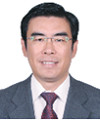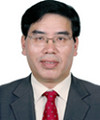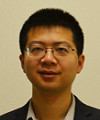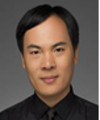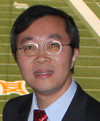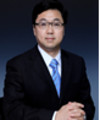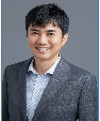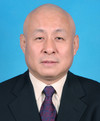Chinese lecturers
Shaojun Wei
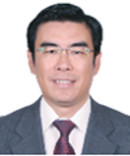
Name: | Shaojun Wei |
Position: | Dean of Microelectronics Institute, Tsinghua |
Faculty: | School of Information Science and Technology |
Department: | Department of Micro/nanoelectronics |
University: | Tsinghua University |
E-mail: | |
Website: |
Biography: Prof. WEI received Master degree in Engineering from the Department of Radio and Electronics, Tsinghua University, Beijing, China in 1984. He received Doctor degree in Applied Science in 1991 from the Laboratory of Electronics, Faculté Polytechnique de Mons, Belgium and then became the assistant professor in the same laboratory. From 1989 to1991, he also worked as a research fellow in ARAMIS, Belgium. Dr. WEI returned to China in 1995. From 1998 to 2005, he worked for Datang Telecom Technology Co., Ltd. successively as Vice-President, President & CEO. He was the founder, President & CEO and Chairman of the Board of Datang Microelectronics Technology Co., Ltd. from 1996 to 2005. He was the CTO of Datang Telecom Industry Group from 2005 to 2006.
Dr. WEI is now the Dean of the Department of Micro- and Nano-Electronics, Director of the Institute of Microelectronics, Director of the Research Center for Mobile Computing, Tsinghua University and professor of Peking University. Dr. WEI is the Vice President of CSIA, President of VLSI Design Branch, CSIA and the President of Communication Specific IC Committee, CIC. He is the fellow of CIE.
Zewen Liu
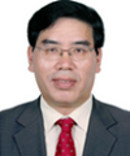
Name: | Zewen Liu |
Position: | Professor at Tsinghua University |
Faculty: | School of Information Science and Technology |
Department: | Institute of Microelectronics |
University: | Tsinghua University |
E-mail: | |
Website: |
Biography: Prof. dr. LIU Zewen received his BS degree in Physics from the University of Science and Technology (USTC), Hefei, China in 1983 and received his Ph.D degree in Microfabrication from the University of Paris-sud (Paris XI), Paris, France in 1997. He is currently full professor in Institute of Microelectronics at Tsinghua University (IMETU). His research interests are MEMS and Micro/nano system technologies, including materials, process and devices of RF-MEMS, NEMS, and integrated sensors.
He was the pioneer in X-ray lithography for IC application and RF MEMS technology for communication application. He was awarded the Chinese National Award for his contribution in the works on lithography, and the Tsinghua University Excellent Teacher Award for his contribution in MEMS research. He is the American IEEE member, Chinese CIE and CSMNT member.
He has published more than 150 technical papers in the academic journal and conference. He is an inventor of more than 20 patents.
Zheng Wang
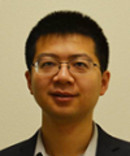
Name: | Zheng Wang |
Position: | Professor |
Faculty: | School of Microelectronics and Solid-State Electronics |
Department: | Department of Integrated Circuits and Systems |
University: | UESTC |
E-mail: | |
Website: |
Biography: Prof. Wang received the B.S. and M.S. degree from Tsinghua University, Beijing, China, in 2007 and 2010, respectively. He received the Ph.D. degree in electrical engineering from University of California, Irvine in 2014. From 2012 to 2013, he also worked for Broadcom Corp. on the phased-array based 60GHz WiGig chip set. From 2014 to 2017, he was with Qualcomm Inc. on the RF Front-End research for cellular application.
He is currently the Director of THz Integrated Circuits and Systems Lab in the Center for Integrated Circuits, UESTC. He is bestowed as the recipient of The Recruitment Program for Young Professionals (National 1000Plan Talent) in 2017. His research field includes the design of novel RF, MMW and THz silicon-based integrated circuits for next generation 10-gigabit wireless communications as well as imaging systems.
Yuchao Yang
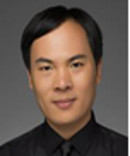
Name: | Yuchao Yang |
Position: | Assistant Professor |
Faculty: | Electrical Engineering |
Department: | Institute of Microelectronics |
University: | Peking University |
E-mail: | |
Website: | http://eecs.pku.edu.cn/teaching/inservice/search/Detail/?ID=5385 |
Biography: Yuchao Yang received Ph.D. degree from Tsinghua University in 2010. After that he joined University of Michigan, Ann Arbor, MI, USA as a postdoctoral Research Fellow and was promoted to Senior Research Fellow in 2013. He is now an Assistant Professor and Boya Young Scholar in Institute of Microelectronics, Peking University, and serves as the chief scientist for National Key R&D Program of China. He is a recipient of the “1000 Youth Talents Program” of China and the Qiu Shi Outstanding Young Scholar Award. His research interests include the device physics, memory and computing applications of memristors and atomic scale material characterizations. He has published >60 papers in high-profile journals such as Nature Electronics, Nature Communications, Advanced Materials, Nano Letters, Advanced Functional Materials, etc. and 6 book chapters. His papers have been cited over 3500 times, with an h-index of 24. He was invited to give 25 keynote/invited talks on international conferences and serve as technical program committee chair and member for 3 international conferences. He is a member of IEEE, MRS, RSC and ACS.
Dong Wang

Name: | Dong Wang |
Position: | Associate Professor |
Department: | Research Institute of Information Technology |
University: | Tsinghua University |
E-mail: |
Biography: Prof. Dong Wang received his PhD degree in the University of Edinburgh in 2010, supported by the Marie Curie Fellowship. Before that he was a software engineer in Oracle China and IBM China. In 2010, he joined EURECOM France as a post-doc fellow, and in 2011, joined Nuance US as a senior research scientist. In 2012, he joined Tsinghua University as an assistant professor, and was promoted to be an associate professor in 2017. Prof. Dong Wang has been working in the area of speech and language processing for 20 years, and has published more than 100 academic papers. He is an IEEE senior member and serves several research communities: he is the principle secretary of National Conference on Man-Machine Speech Communication (NCMMSC), the vice Chair of speech and language committee, Asia Pacific Signal and Information Processing Association (APSIPA), the representative of Mainland China in O-COCOSDA.
Xiaowei Li
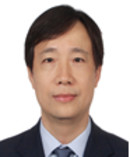
Name: | Xiaowei Li |
Position: | Deputy (Executive) Director of State Key Lab |
Faculty: | State Key Lab of Computer Architecture |
Department: | Institute of Computing Technology |
University: | Chinese Academy of Sciences |
E-mail: | |
Website: |
Biography: Xiaowei Li received his Ph.D. in Computer Science from Chinese Academy of Sciences (CAS) in 1991. He is currently Chair Professor of VLSI Testing and Fault-Tolerant Computing at Institute of Computing Technology (ICT), CAS. He is Deputy (Executive) Director of the State Key Lab of Computer Architecture. He is Vice-Chair of the Academic Degree Evaluation Committee at ICT. He is also Distinguished Professor of School of Computer and Control Engineering at University of Chinese Academy of Sciences (Beijing). Before joining ICT in 2000, he was an Associate Professor of Department of Computer Science at Peking University.
His technical interests include VLSI testing and testable design, fault-tolerant computing, wireless sensor networks. He has supervised 33 Ph.D. students and has published over 280 technical papers and 4 books in these areas, holds over 60 China patents and 40 software copyrights. He served as Chair of IEEE ATS Steering Committee (2011-2013), and member of ITC-Asia Steering Committee. He has served as Vice-Chair of IEEE Asia and Pacific Regional TTTC since 2004, and currently serves as Vice-Chair of IEEE TTTC (2018-2019). He was Founder of China Test Conference in 2000. He served as Chair of CCF TC on Fault-Tolerant Computing (2008-2015). He serves as Associate Editor of IEEE TCAD, JOLPE, JETTA, and Associate Editor-in-chief of JCST.
David Z. Pan
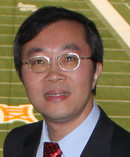
Name: | David Z. Pan |
Position: | Engineering Foundation Professor |
Department: | Electrical and Computer Engineering |
University: | The University of Texas at Austin |
E-mail: | |
Website: |
Biography: David Z. Pan (IEEE Fellow, SPIE Fellow) received his BS degree from Peking University and MS/PhD degrees from University of California, Los Angeles (UCLA). He is currently Engineering Foundation Professor at the Department of Electrical and Computer Engineering, The University of Texas at Austin. His research interests include cross-layer IC design/system/technology co-optimizations for manufacturing, reliability, security, machine learning in EDA, hardware acceleration, design/CAD for analog/mixed signal designs and emerging technologies such as nanophotonics. He has published over 300 refereed journal/conference papers and 8 US patents. He has served in many journal editorial boards and conference committees, including various leadership roles such as ICCAD 2018 Program Chair, ASP-DAC 2017 Program Chair. He has received many prestigious awards, including SRC Technical Excellence Award, 16 Best Paper Awards, DAC Top 10 Author Award in Fifth Decade, ASP-DAC Frequently Cited Author Award, Communications of ACM Research Highlights, ACM/SIGDA Outstanding New Faculty Award, NSF CAREER Award, IBM Faculty Award (4 times), UCLA Engineering Distinguished Young Alumnus Award, UT Austin RAISE Faculty Excellence Award, etc. He has graduated 23 PhD students who have won many awards, including the First Place of ACM Student Research Competition Grand Finals in 2018, ACM Outstanding PhD Dissertation in EDA (twice), and ACM/SIGDA Student Research Competition Gold Medal (twice), among others.
Huaqiang Wu
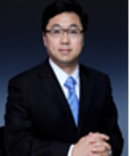
Name: | Huaqiang Wu |
Position: | Deputy Director |
Department: | Microelectronics and Nanoelectronics |
University: | Tsinghua University |
Email: | |
Website: |
Biography: Dr. Wu is presently the deputy director of the Institute of Microelectronics, Tsinghua University, Beijing, China. Dr. Wu received his Ph.D. degree in electrical engineering from Cornell University, Ithaca, NY, in 2005. Prior to that, he graduated from Tsinghua University, Beijing, China, in 2000 with double B.S. degrees in material science & engineering and enterprise management. From 2006 to 2008, he was a senior engineer in Spansion LLC, Sunnyvale, CA. He joined the Institute of Microelectronics, Tsinghua University in 2009 as an associate professor. His research interests include advanced memory and brain inspired computing technologies. Dr. Wu has published more than 100 technical papers and owns more than 60 patents. Dr. Wu is also served as the director of Micro/Nano Fabrication Center and deputy director of Beijing Innovation Center for Future Chips.
Yu Wang
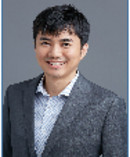
Name: | Yu Wang |
Position: | Associate Professor |
Department: | Department of Electronic Engineering |
University: | Tsinghua University |
Email: | |
Website: |
Biography: Yu Wang joined received his B.S. degree in 2002 and Ph.D. degree (with honor) in 2007 from Tsinghua University, Beijing. He is currently a Tenured Associate Professor with the Department of Electronic Engineering, Tsinghua University. Yu Wang has published more than 50 journals (43 IEEE/ACM journals) and more than 150 conference papers (11 DAC, 4 ICCAD, 8 FPGA) in the areas of EDA, FPGA, VLSI Design, and Embedded Systems. He has served as PI/Co-PI on over 20 research grants administrated by China government agencies (including NSFC, National Key Technology Program, 863, and etc) and 16 research grants from industry (including Microsoft, IBM, Huawei, MHI and etc). He has received Best Paper Awards in FPGA 2017, NVMSA 2017, ISVLSI 2012 with 8 Best Paper Nominations. He is a recipient of DAC Under-40 Innovator Award in 2018 and IBM X10 Faculty Award in 2010 (one of 30 worldwide). Yu Wang also received the Natural Science Fund for Outstanding Youth Fund in 2016, and is the co-founder of Deephi Tech (valued over 150M USD), which is a leading deep learning processing platform provider.
Zhihua Wang
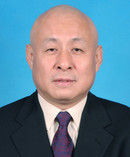
Name: | Zhihua Wang |
Position: | Professor |
Department: | Institute of Microelectronics |
University: | Tsinghua University |
Email: | |
Website: |
Biography: Zhihua Wang (M’99-SM’04-F’17) received the B.S., M.S., and Ph.D. degrees in Electronic Engineering in 1983, 1985 and 1990, respectively, from Tsinghua University, Beijing, China, where he has served as full professor and Deputy Director of the Institute of Microelectronics since 1997 and 2000. He was a visiting scholar at CMU (1992-1993) and KU Leuven (1993-1994), and was a visiting professor at HKUST (2014.9-2015.3). His current research mainly focuses on CMOS RFIC and biomedical applications, involving RFID, PLL, low-power wireless transceivers, and smart clinic equipment combined with leading edge RFIC and digital image processing techniques. He has co-authored 12 books/chapters, over 183 (480) papers in international journals (conferences), over 244 (29) papers in Chinese journals (conferences) and holds 123 Chinese and 8 US patents.
Prof. Wang has served as the chairman of IEEE SSCS Beijing Chapter (1999-2009), an AdCom Member of the IEEE SSCS (2016-2019), a technology program committee member of the IEEE ISSCC (2005-2011), a steering committee member of the IEEE A-SSCC (2005-), the technical program chair for A-SSCC 2013, a guest editor for IEEE JSSC Special Issues (2006.12, 2009.12 and 2014.11), an associate editor of IEEE Trans on CAS-I, II and IEEE Trans on BioCAS, and other administrative/expert committee positions in China’s national science and technology projects.

